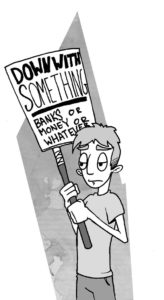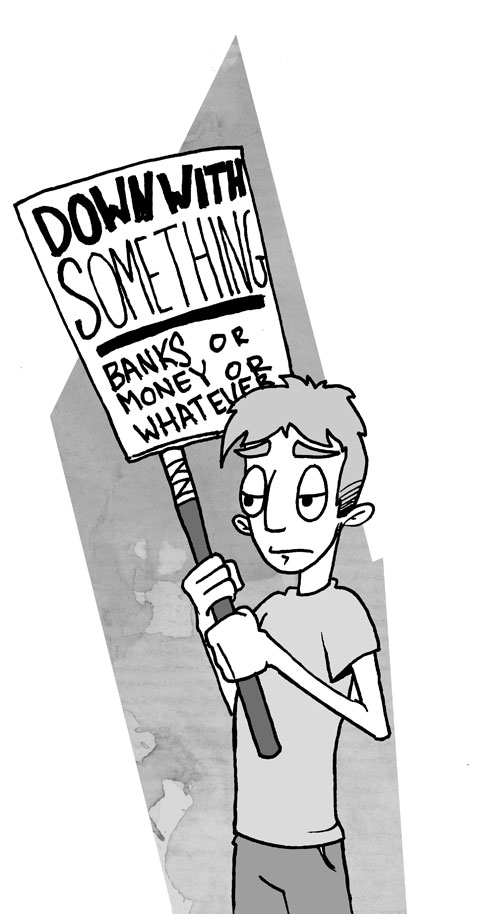Yuni Kim
News Editor
When I think of the word “protest”, the words that come to mind are “tear gas” and “fire hoses”. “Incarceration” and “missing persons notice”.
I admit these are pretty gruesome words. But as a child growing up in South Korea in the 90s, the protests that I saw on the news had these very things in common: mass gatherings, brutality, and unwarranted violence.
 So as I explored the grounds of St. James Park this past Saturday for the Occupy Toronto protest, I wasn’t expecting a Korea. Hell, I wasn’t even expecting a second round of G20. But I did find myself asking a lot of questions, and received a lot of partial answers that made for an unsatisfactory whole.
So as I explored the grounds of St. James Park this past Saturday for the Occupy Toronto protest, I wasn’t expecting a Korea. Hell, I wasn’t even expecting a second round of G20. But I did find myself asking a lot of questions, and received a lot of partial answers that made for an unsatisfactory whole.
“What are you guys fighting for?” I asked different protesters throughout the day.
“We’re against corporate greed,” says one; “we’re against destruction of the environment,” says another; “we’re against ignorance of First Nations’ rights,” says one more.
And the list goes on.
The unifying global message about the Occupy Movements is, of course, about the struggles of the disgruntled and frustrated who found themselves at a financial and economic rock bottom while the wealthy received bailouts and tax cuts, regardless of performance. The people involved in Occupy Wall Street exercised their collective voices, and are now moving into their second month of continuous vocalizing. It has spawned hundreds of protests around the world.
With this in mind, I tried to understand what Occupy Toronto was about. Some were frustrated. Others were angry, infuriated—and rightfully so. They gave speeches about their causes, showering the crowd with their spittle.
Then I saw them all. Cross-armed, and with many bobbing their heads in agreement. Others held up their cell phones and tablets to record the passionate rhetoric. Some, huddled together in small groups, smoked pot with police officers merely a few dozen feet away.
There were drum circles, meditation circles, and impromptu music performances going on, sometimes simultaneously. Many others pressed pamphlets into my hands, urging me to follow their movement, to follow their Twitter feeds and Facebook walls.
There was a lot going on—a lot of chanting, signs, and questionable whiffs of smoke—and I was disappointed. I couldn’t find a single moment when the protesters came together collectively to unite behind one cause. Instead, groups appeared to be engrossed in their own sub-categories and to me, this effectively watered down the potential power of their message.
This isn’t me being cynical. I attended Occupy Toronto not as a protester or an organizer, but as an observer looking to understand. And in the end, I was very confused. If I had no idea prior what Occupy
Toronto was about, the message would have completely flown over my head.
I’m all for exercising one’s democratic rights. But I’m here left to wonder whether it would be more effective as a collective effort, and not like what I witnessed on Saturday afternoon.


